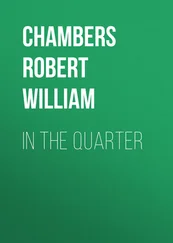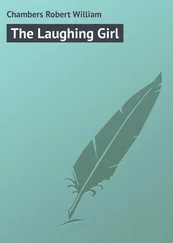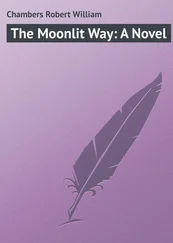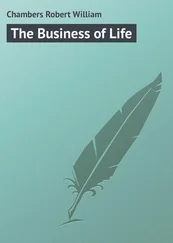Robert Chambers - The Girl Philippa
Здесь есть возможность читать онлайн «Robert Chambers - The Girl Philippa» — ознакомительный отрывок электронной книги совершенно бесплатно, а после прочтения отрывка купить полную версию. В некоторых случаях можно слушать аудио, скачать через торрент в формате fb2 и присутствует краткое содержание. Жанр: foreign_prose, на английском языке. Описание произведения, (предисловие) а так же отзывы посетителей доступны на портале библиотеки ЛибКат.
- Название:The Girl Philippa
- Автор:
- Жанр:
- Год:неизвестен
- ISBN:нет данных
- Рейтинг книги:3 / 5. Голосов: 1
-
Избранное:Добавить в избранное
- Отзывы:
-
Ваша оценка:
- 60
- 1
- 2
- 3
- 4
- 5
The Girl Philippa: краткое содержание, описание и аннотация
Предлагаем к чтению аннотацию, описание, краткое содержание или предисловие (зависит от того, что написал сам автор книги «The Girl Philippa»). Если вы не нашли необходимую информацию о книге — напишите в комментариях, мы постараемся отыскать её.
The Girl Philippa — читать онлайн ознакомительный отрывок
Ниже представлен текст книги, разбитый по страницам. Система сохранения места последней прочитанной страницы, позволяет с удобством читать онлайн бесплатно книгу «The Girl Philippa», без необходимости каждый раз заново искать на чём Вы остановились. Поставьте закладку, и сможете в любой момент перейти на страницу, на которой закончили чтение.
Интервал:
Закладка:
But what on earth to do with it until it could be safely transferred to the proper person he had not the slightest idea.
That evening, as he changed trains at the frontier, in the lamp-lit dimness of the station platform he was fired at twice, and not hit.
A loud outcry naturally ensued; a stampede of passengers who tried to escape, a rush of others who desired to see what had happened – much hubbub and confusion, much shouting in several languages.
But nobody could be found who had fired two shots from a revolver, and nobody admitted that they had been shot at.
And so, as nobody had been hit, the gendarmes, guards, and railway officials were in a quandary.
And the train rolled out of the station with Halkett aboard, a prey to deepest anxiety concerning his long thin envelope.
CHAPTER I
Somebody at Warner's elbow spoke to him in French. He turned his head leisurely: a well-dressed young fellow, evidently an Englishman, was striving to maintain a place beside him in the noisy, market day crowd.
"Pardon, Monsieur, are you English?"
"American," replied Warner briefly, and without enthusiasm.
"My name is Halkett," said the other, with a quick smile. "I'm English, and I'm in trouble. Could you spare me a moment?"
To Warner the man did not look the typical British dead-beat, nor had he any of the earmarks and mannerisms of the Continental beach-comber. Yet he was, probably, some species or other of that wearisome and itinerant genus.
"I'm listening," said the young American resignedly. "Continue your story."
"There's such a row going on here – couldn't we find a quieter place?"
"I can hear you perfectly well, I tell you!"
Halkett said:
"If I try to talk to you here I'll be overheard, and that won't do. I'm very sorry to inconvenience you, but really I'm in a fix. What a noise these people are making! Do you mind coming somewhere else?"
"Say what you desire to say here," returned Warner bluntly. "And perhaps it might save time if you begin with the last chapter; I think I can guess the rest of the story."
The features of the American expressed boredom to the point of unfriendly indifference. The Englishman looked at him, perplexed for a moment, then his sun-bronzed face lighted up with another quick smile.
"You're quite mistaken," he said. "I don't expect the classic remittance from England, and I don't require the celebrated twenty-franc loan until it arrives. You take me for that sort, I see, but I'm not. I don't need money. May I tell you what I do need – rather desperately?"
"Yes, if you choose."
"I need a friend."
"Money is easier to pick up," remarked Warner drily.
"I know that. May I ask my favor of you all the same?"
"Go ahead."
"Thanks, I will. But can't we get out of this crowd? What is going on in this town anyway?"
"Market day. It's like this once a month in Ausone. Otherwise the town is as dead as any other French provincial town."
Shoulder to shoulder they threaded their way through the crowded market square, amid the clatter of sabots, the lowing of cattle, the incessant bleating of sheep. Ducks quacked from crates in wagons, geese craned white necks and hissed above the heads of the moving throngs; hogs squealed and grunted; fowls hanging by their legs from the red fists of sturdy peasant women squawked and flapped.
Cheap-Jack shows of all sorts encumbered the square and adjacent streets and alleys – gingerbread booths, shooting ranges, photograph galleries, moving-picture shows, theaters for ten sous. Through the lowing, bleating, and cockcrowing, the drumming and squeaking of Punch and Judy, and the brassy dissonance of half a dozen bands, mournful and incessant strains from several merry-go-rounds continued audible.
But the steady clatter of sabots on stony pavements, and the ceaseless undertone of voices, swelling, subsiding, dominated the uproar, softening the complaint of kine and feathered fowl to a softly cheerful harmony suggestive of summer breezes and green fields.
On the dusty Boulevard d'Athos – the typical solitary promenade of such provincial towns – there were, as usual, very few people – the inevitable nurses here and there, wheeling prams; a discouraged, red-trousered and sou-less soldier or two sprawling on benches under the chestnut trees; rarely a passing pedestrian, more often a prowling dog.
At the head of the Boulevard d'Athos, where the rue d'Auros crosses, Warner halted under the shade of the chestnuts, for the July sun was very hot. His unconvinced grey eyes now rested inquiringly on the young Englishman who had called himself Halkett. He said:
"What species of trouble are you in?"
Halkett shook his head.
"I can't tell you what the trouble is; I may only ask you to help me a bit – " The quick smile characteristic of him glimmered in his eyes again – a winning smile, hinting of latent recklessness. "I have my nerve with me, you see – as you Americans have it," he added. "You're thinking something of that sort, I fancy."
Warner smiled too, rather faintly, but remained silent.
"This is what I want you to do," continued Halkett. "I've a long thin envelope in my pocket. I'd like to have you take it from me and slip it into your breast pocket and then button your coat. Is that too much to ask?"
" What! "
"That's all I want you to do. Then if you wouldn't mind giving me your name and address? And that is really all I ask."
Said the American, amused and surprised:
"That airy request of yours requires a trifle more explanation than you seem inclined to offer."
"I know it does. I can't offer it. Only – you won't get into trouble if you keep that envelope buttoned tightly under your coat until I come for it again."
"But I'm not going to do that!"
"Why?"
"Why the devil should I? I don't propose to wander about France carrying papers concerning which I know nothing – to oblige a young man about whom I know even less."
"I quite see that," admitted Halkett seriously. "I shouldn't feel inclined to do such a thing either."
"Can't you tell me what is the nature of these papers? – Or something – some explanation – "
"I'm sorry."
"And why do you propose to trust me with them?" continued Warner, curiously. "How do you know I am honest? How do you know I won't examine your packet as soon as you clear out?"
Halkett looked up with his quick and winning smile:
"I'll take that risk."
"Why? You don't know me."
"I had a good look at you in the market square before I spoke to you."
"Oh. You think you are a psychologist?"
"Of sorts. It's a part of my business in life."
"Suppose," said Warner, smiling, "you explain a little more clearly to me exactly what is your actual business in life."
"Very glad to. I write."
"Books?"
"No; just – stories."
"Fiction?"
"As one might say, facts rather than fiction."
"You are a realist?" suggested Warner with slight irony.
"I try to be. But do you know, there is more romance in realism than in fairy tales?"
Warner, considerably diverted, nodded:
"I know. You belong to the modern school, I take it."
"Very modern. So modern, in fact, that my work concerns tomorrow rather than today."
Warner nodded again:
"I see. You are a futurist – opportunist. There are a lot of clever men working on those lines in England… Still – " he glanced amusedly at Halkett " – that scarcely explains your rather unusual request. Why should I take charge of an envelope for you ?"
"My dear fellow, I can't answer that… Still – I may say this much; I'm hard put to it – rather bewildered – had a rotten time of it in the Grand Duchy and in Belgium – so to speak – "
Читать дальшеИнтервал:
Закладка:
Похожие книги на «The Girl Philippa»
Представляем Вашему вниманию похожие книги на «The Girl Philippa» списком для выбора. Мы отобрали схожую по названию и смыслу литературу в надежде предоставить читателям больше вариантов отыскать новые, интересные, ещё непрочитанные произведения.
Обсуждение, отзывы о книге «The Girl Philippa» и просто собственные мнения читателей. Оставьте ваши комментарии, напишите, что Вы думаете о произведении, его смысле или главных героях. Укажите что конкретно понравилось, а что нет, и почему Вы так считаете.












